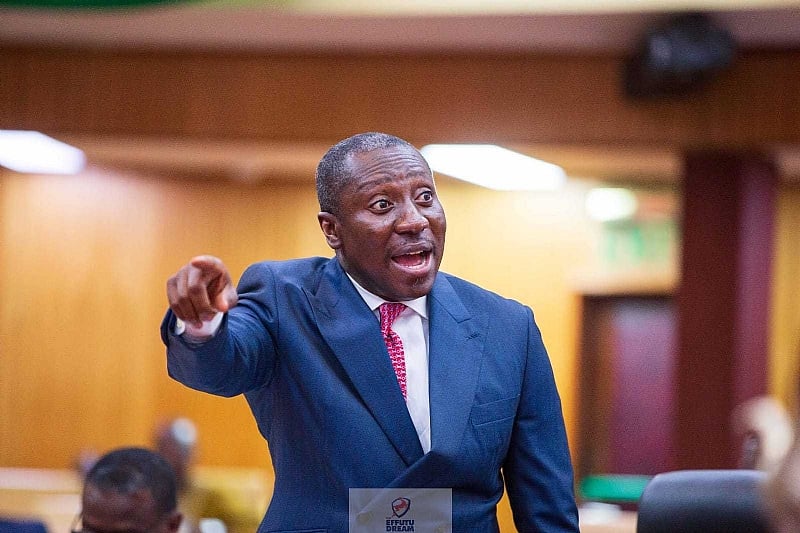The vetting of Dr. Dominic Ayine, the Attorney General-designate, by Parliament’s Appointments Committee on Monday, January 13, 2025, descended into dramatic disarray when Minority Leader Alexander Afenyo-Markin abruptly walked out in protest, claiming biased treatment of New Patriotic Party (NPP) members. The disruption stemmed from a question posed by Suame MP John Darko concerning a potential conflict of interest related to Dr. Ayine’s law firm. Though Committee Chairman Bernard Ahiafor indicated that the nominee had already addressed the matter, Mr. Darko persisted, leading to a clash over procedural fairness.
The crux of the dispute centered on Chairman Ahiafor’s decision to rule Mr. Darko’s repeated questioning out of order. Mr. Darko contended that the Chairman was unfairly curtailing his line of inquiry, injecting a sense of partisan bias into the proceedings. This perception of unfairness was amplified by Mr. Afenyo-Markin, who accused the Chairman of consistently targeting NPP committee members, particularly newer and younger representatives. He expressed his growing unease with what he perceived as a pattern of dismissive behavior towards his colleagues, suggesting a deliberate attempt to stifle their contributions.
The Minority Leader’s intervention heightened the tension in the room. He directly addressed the Chairman, expressing his concern over the Chairman’s handling of NPP members’ questions, characterizing it as inappropriate and potentially undermining the integrity of the vetting process. While acknowledging his earlier attempts to privately caution the Chairman, Mr. Afenyo-Markin declared his inability to remain silent in the face of what he considered continuing unfair treatment. He argued that the Chairman’s actions went beyond mere procedural disagreements and represented a broader pattern of partisan bias.
Despite Mr. Afenyo-Markin’s protestations, Chairman Ahiafor remained firm in his ruling, refusing to permit Mr. Darko to revisit the already-addressed question. He likely viewed the repeated questioning as redundant and potentially disruptive to the vetting process, especially given that the nominee had provided a response on the matter. This unwavering stance, however, further fueled Mr. Afenyo-Markin’s frustration and solidified his perception of biased treatment. The Chairman’s refusal to reconsider his ruling likely reinforced the Minority Leader’s belief that his concerns were not being taken seriously.
Reaching an impasse, and feeling his protests were unheeded, Mr. Afenyo-Markin chose to exit the proceedings, leaving the Appointments Committee in a state of disarray. His dramatic walkout underscored the escalating tensions within the committee and served as a public display of his dissatisfaction with the Chairman’s conduct. The incident highlighted deeper concerns about potential partisan divides influencing the vetting process and raised questions about the committee’s ability to conduct its duties impartially.
The walkout left a charged atmosphere in its wake, potentially impacting the trajectory of the confirmation proceedings. The incident not only disrupted the immediate vetting of Dr. Ayine but also cast a shadow over the broader political landscape. It raised questions about the future working relationship between the majority and minority parties within the Appointments Committee and potentially within Parliament itself. The incident underscored the challenges inherent in navigating politically sensitive appointments and the importance of maintaining procedural fairness and impartiality in such processes.














